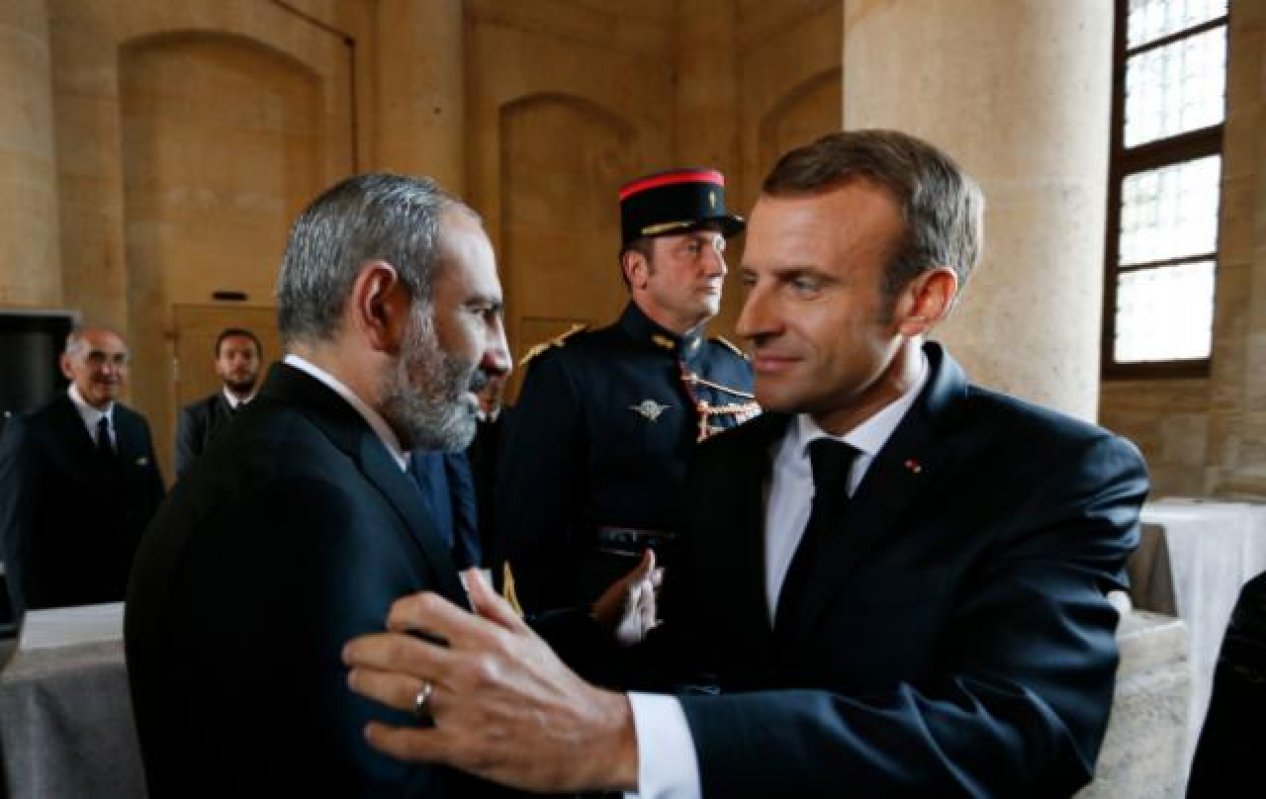
France wants to form its own military channel of communication with Armenia, according to France’s Intelligence Online. A manifestation of this may be the possible appointment of a French military attaché with residence in Yerevan. "Paris may soon appoint a military attaché with residence at the French embassy in Yerevan. Although such an appointment may at first glance seem insignificant, it may well be an expression of France's desire to open its own military channel with Armenia, thereby ending the latter's exclusive military relations with Moscow," the French newspaper reports.
“By planning to appoint a new French defense attaché in Yerevan, France aims to bring Armenia closer to the West. But in a region torn between multiple antagonistic forces, this new role would have to be carried out with care,” reads the report.
It is noted that at present the duties of the French attaché in Armenia are performed by Colonel Frederic Campos, whose residence is located in Georgia. The publication also noted that in April 2022, he took part in the meeting of the Secretary of the Security Council of Armenia Armen Grigoryan and the delegation of the General Directorate for Armaments (DGA) of the French Ministry of Defense, headed by Marie-Agnes Picard-Chessel, which, according to the publication, "has experience in the Russian defense market".
"The possible appointment coincides with the resumption by Paris of the work of the bilateral armaments committee with Yerevan. This body determines the strategic plans of the Armenian Defense Ministry and possible acquisitions from French manufacturers," the publication also writes.
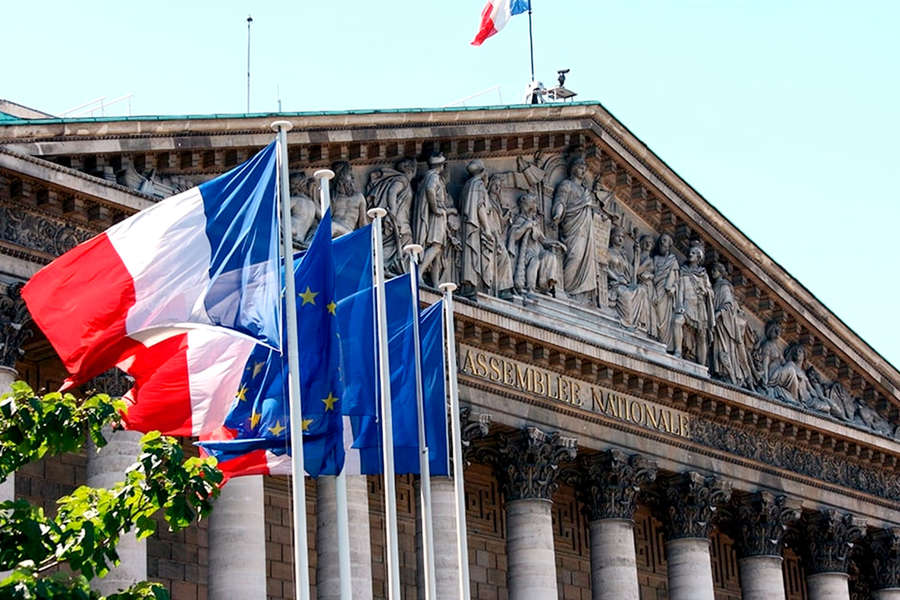
Faktyoxla Lab. has tried to clarify for what purpose France wants to militarize Armenia.
Let's start with the fact that in June last year, or rather eight months after the liberation of its territories by Azerbaijan, the capitulation of Armenia and the signing, with the mediation of Russia, of the statement on a ceasefire and all hostilities in the zone of the Karabakh conflict, various media leaked information that French and Armenian diplomats hold intensive meetings in Yerevan, Paris and New York, where the UN headquarters is located. The purpose of these meetings is to try to de-legitimize the tripartite statement that stopped the war in the region.
According to, for example, a Moskovsky Komsomolets source close to the French diplomatic department, President Emmanuel Macron, and then acting Prime Minister of Armenia Nikol Pashinyan are considering the possibility of adopting a new plan involving a revision of the previous UN Security Council resolution on the situation in Karabakh.
As some experts noted then, at first glance, the idea looks crazy. Russia, as a permanent member of the UN Security Council, has the right to veto any resolutions of the Security Council, especially those that may in one way or another affect its own interests. In addition, according to the trilateral document signed on November 9, Russian military personnel must control the situation along the line of contact and the Lachin corridor for five years - only after this period the parties can refuse Russian mediation.
Experts believed that "Western democracies" simply want to buy out "a stake in the state of Armenia, turning it into a springboard for realizing their interests in the "underbelly" of Russia. Naturally, France, where a huge Armenian diaspora lives, intends to play the first fiddle in this process. Other observers feared that Paris was considering the possibility of introducing troops to the South Caucasus and deploying them along the Armenian-Azerbaijani border, and even in Karabakh itself.
One way or another, it is obvious that the results of the Second Karabakh War did not suit Paris, and the above is very similar to France's attempts to return to the South Caucasus, but it is not yet clear in what status.
According to some experts, France really wants Russia not to have such an ally as Armenia. The country is trying by all means to attract Armenia, get its support. France is doing this because Russia "expelled France from the Central African Republic and Burkina Faso." France cannot come to terms with this in any way and is trying to take revenge on Russia, using various options for this.” France wants to show Armenia that Paris is its main ally, not Russia.
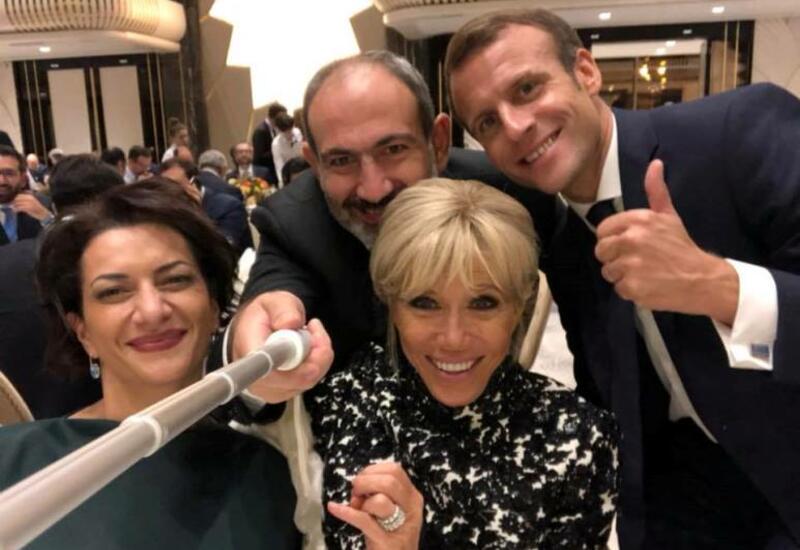
As for Armenia, after the Second Karabakh War, Pashinyan’s government began to probe the waters in the West. France is the only European country that has demonstrated its support for Armenia and demonstrates it more openly. During the Second Karabakh War, Paris showed that it was on the side of Yerevan. France criticized the alleged "sending of militants from Syria" to Karabakh. The French Parliament recognized the independence of the self-proclaimed separatist "NKR". In a word, Paris has already taken a number of steps towards creating its geopolitical presence in the region.
In early July last year, France and Armenia held "successful" talks on military cooperation at the level of the head of the Armenian defense ministry and the French ambassador. According to the Armenian media, agreements have been reached on the provision of military assistance by Paris to Yerevan. This, in turn, implied not only the supply of weapons to Armenia, but also, possibly, the deployment of peacekeepers. A little earlier, in May, Pashinyan stated that in a telephone conversation with him, French President Emmanuel Macron confirmed the readiness of Paris to provide military support under a UN mandate. Macron's reaction "was unambiguous," Pashinyan said. It should be especially noted that the French army cannot boast of any significant achievements over the past 50 years. One way or another, France is hiding behind the broad backs of other Western partners in matters of security.
Why does France want to increase its influence in Armenia?
Firstly, the confrontation with Turkiye, which intensified in Azerbaijan and the region after the Second Karabakh War. With Ankara, Paris cannot share influence in the Mediterranean, Libya and Syria. The main vector of French policy in the Caucasus is again anti-Turkish. A vivid example of France's approaches today are active attempts to slow down the Zangazur corridor and advance the Iran-Armenia-Georgia corridor. At the same time, active behind-the-scenes consultations with Iran are obviously being carried out, often contrary to the official position of the West regarding sanctions. The “anti-Zangazur” position is dictated mainly by anti-Turkish sentiments and the understanding that Armenia, after the onset of sustainable peace and the opening of communications, will inevitably enter the orbit of Turkish interests, which is strategically inevitable and good for Armenia itself. At the same time, the Iran-Armenia-Georgia corridor project itself is a bluff that has no economic grounds. No significant cargo will move along this corridor. The goal is to prevent Zangazur and Armenia from drifting towards Turkiye and Azerbaijan. In other words, France does not want a real peace agreement, but rather a low-intensity conflict, as this gives it additional opportunities to intervene in issues in the Caucasus.
Secondly, the 700,000 Armenian population of France. The warm relations of France with Armenia are precisely the relations with the French elite. Here, everything is somewhat different. The Armenian diaspora capital, the presence of a large number of Armenians among French politicians, businessmen, lawyers, and cultural figures is all a reality. At the same time, most of the rich and influential Armenians are well integrated into the French "high" society, they are considered French, and therefore they have significant influence. This is what explains why the French parliament adopts the anti-Azerbaijani resolution so easily and without any resistance. The people do not care, but the elite is interested, and there is a consensus in it.
Thirdly, France is trying to show itself as the leader of the EU, achieving success in foreign policy.
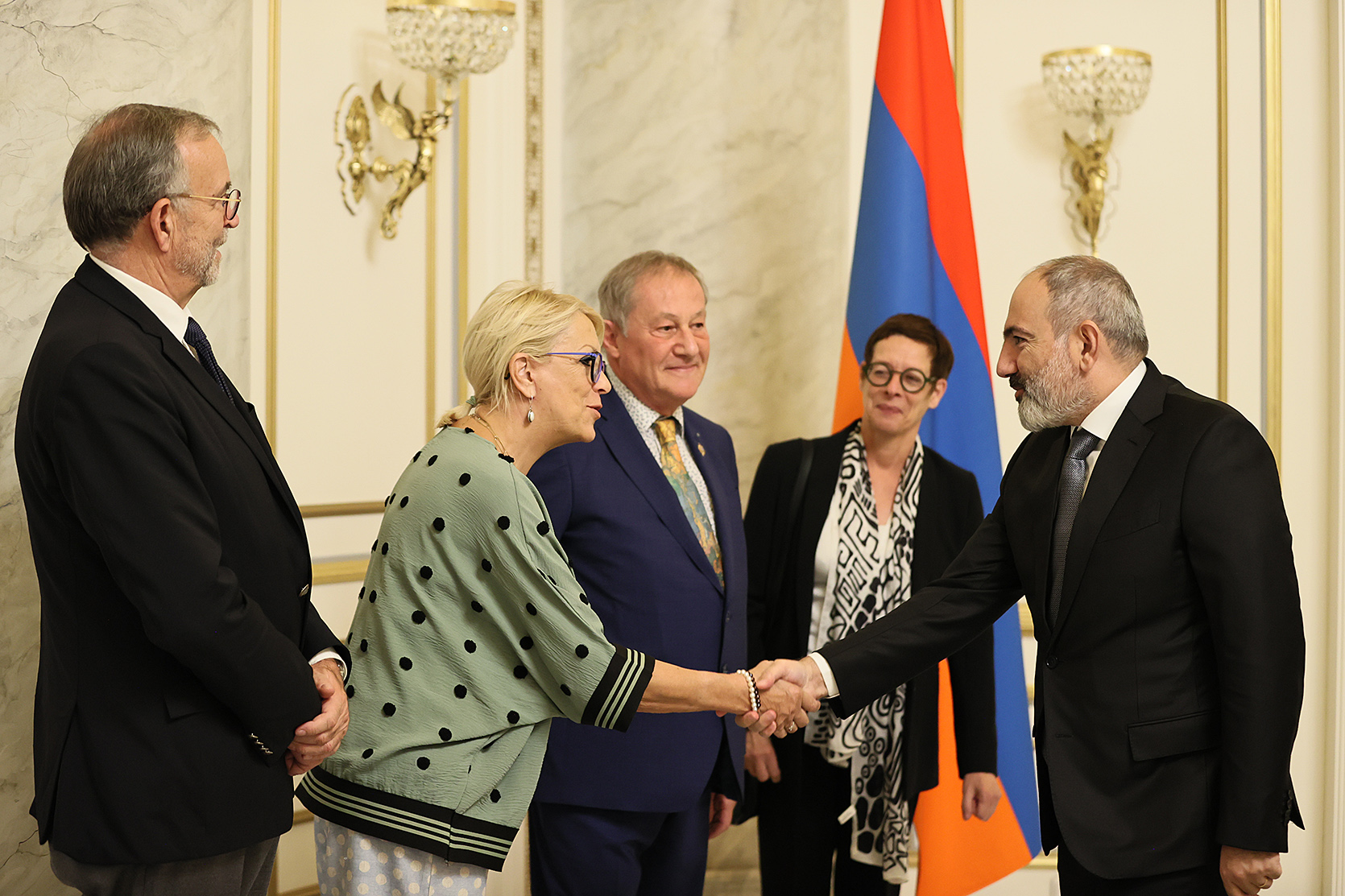
BUT... Despite the coincidence of interests of Pashinyan and Macron in strengthening the role of France in Armenia and the South Caucasus, there are many obstacles to this.
- Paris’ support for Yerevan has discredited France as a mediator in the negotiations, and Azerbaijan is unlikely to agree to its participation in the settlement of relations with Armenia. France, which has flourished for centuries due to colonialism, the enslavement of foreign territories and resources, will, of course, declare that it supports the territorial integrity of the same invader - Armenia. But at the same time, Paris has never been worried about the territorial integrity of Azerbaijan. During the decades of its co-chairing of the OSCE Minsk Group, France literally never made a statement on this issue.
- Militarily, despite Pashinyan’s pro-Western attitude, Russia has the final say. The 102nd military base of the Russian Federation is still in Gyumri, and if Armenia tries to attract the military countries of NATO to the country, then Moscow can punish its ally in the CSTO. By the way, on May 11 of this year, Armenian Prime Minister Nikol Pashinyan held a meeting of the initiative group of the ruling power. During the meeting, Foreign Minister Ararat Mirzoyan spoke about the talks in Washington between the foreign ministers of Azerbaijan and Armenia, which took place in early May, the Hraparak newspaper reports.
Also, during the meeting, Nikol Pashinyan, in his speech, touched upon the accusations against him that he went to Moscow on May 9 and participated in the events on the occasion of Victory Day, which made him a target for criticism from Ukraine and the West. Ukraine considered the participation of the leaders of the seven CIS countries in the events in Moscow "immoral and unfriendly." As the newspaper writes, Pashinyan told his associates that he made the right decision, arising from the vital interests of Armenia.
He reminded the participants of the meeting that Armenia receives gas from Russia, which is Yerevan's strategic partner. Pashinyan said that his refusal to participate in the parade in Moscow would be a dangerous gamble. Pashinyan told fellow party members that in case if Russia loses war in Ukraine, "Armenia will face a repetition of the events of a hundred years ago and the loss of independence." "Pashinyan also said that we alone will not be able to resist the Turkish-Azerbaijani tandem," the newspaper reports.
Now let’s consider what are the main resources France has?
First, it is undoubtedly its participation in the UN Security Council. France is perhaps the weakest, but, nevertheless, a permanent member of the Security Council.
Secondly, France after Brexit has strengthened in the European Union. And if Germany plays a leading role in the EU in economic matters, then in foreign policy issues France tries to be ahead. At the same time, Germany does not particularly interfere with this for now.
Thirdly, French business has significant interests abroad, including the South Caucasus region. The French policy in the region is based on regular attempts to get involved into the main processes and projects, or hinder the implementation of projects in which it does not participate. At the same time, France does not have any significant resources in the South Caucasus and usually tries to build temporary alliances with third forces.
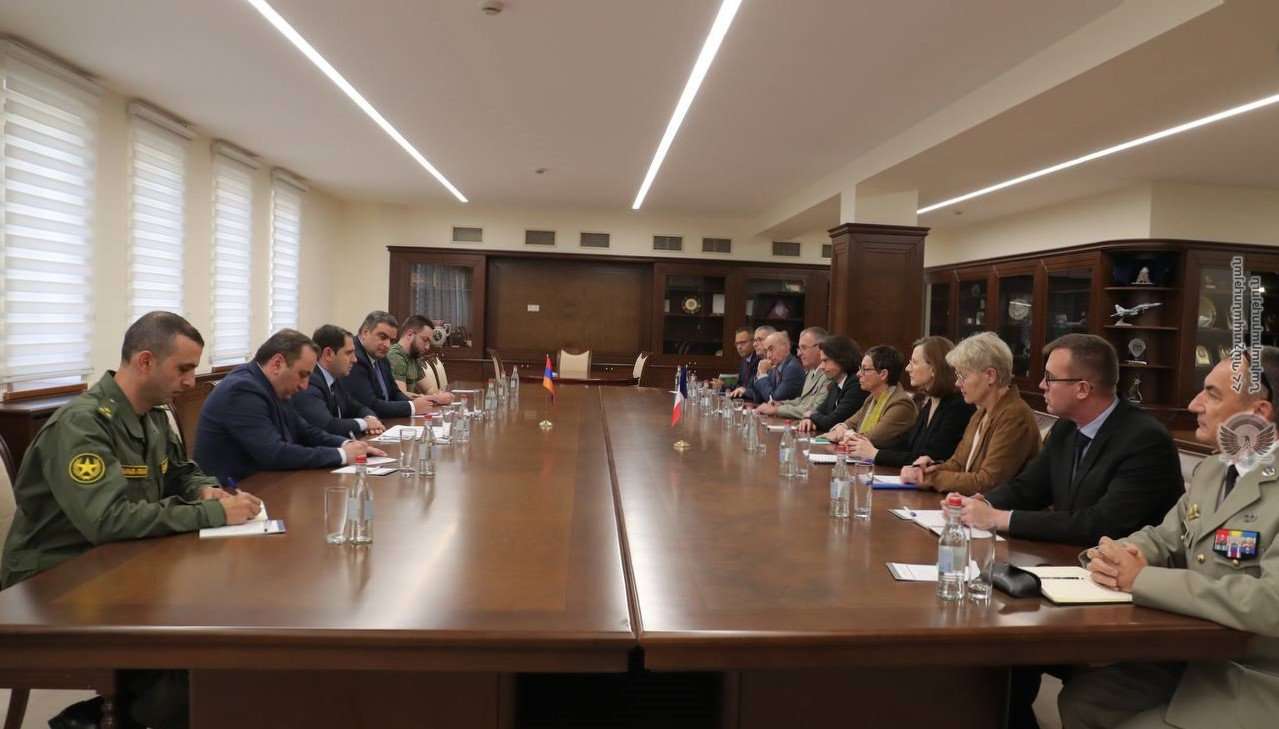
To what extent does this position correspond to the long-term interests of Armenia?
Armenia needs to know that
- France will not be able to gain a foothold in the region. Azerbaijan, Turkiye and Russia have been there for a long time.
- For almost everyone, Azerbaijan is much more important than Armenia. Whether it is energy supply, transit or security issues. Azerbaijan is a regional player, while Armenia is still a geographical dead end, and through its own fault.
- French business has much more interests in Azerbaijan than it will ever have in Armenia.
- Baku has never adhered to the forceful solution of problems, we always stand for the peaceful solution of any issues. On the contrary, it is Yerevan that torpedoes any processes in this issue, trying to drag it out indefinitely, as happened with the Karabakh problem. France supports Armenia by hook or by crook, contrary to international law. That is, Paris is not particularly worried about international law. It has always been like this: both during the occupation and after it. France's attitude towards Armenia is not within the framework of international norms.
- In the current geopolitical realities, the South Caucasus has become an extremely important region. Azerbaijan's victory in the Second Karabakh War put an end to a decades-long conflict and led to new prospects for both the region and the whole of Eurasia. These are, first of all, new transport routes, logistics connecting East and West, oil and gas. Therefore, it is not surprising that some countries, such as France, are trying to increase their presence in the South Caucasus in order to take a piece of the pie.
- But how can France supply weapons to Armenia, through what logistics? This is an expensive process. Paris does not have land routes for the supply of weapons to Armenia. On the other hand, modern weapons must be adapted to the entire weapon system. Considering that more than 90% of weapons in Armenia are Russian, French weapons cannot adapt to it in any way. This refers to the weapons that will be included in the system where it will be necessary to control fire. Controlling fire is the foundation of the basics. For example, Indian weapons are more adapted to Russian ones than French ones.
- France cannot supply Armenia with so many weapons in a short time that can change the balance of power in the region, or replace the Russian weapons that are available there. Therefore, even if some kind of weapon enters Armenia, it will not be of strategic importance.
Conclusion:
- France, by forming its own military channel of communication with Armenia and supplying it with weapons, will in no way contribute to the establishment of peaceful relations in the region between Azerbaijan and Armenia. On the contrary, they only aggravate the situation, but in general it is the task of France to influence Armenia, to take it under its control, namely, to make Armenia be France’s debtor.
- France, which has a colonial history in North and Central Africa and Asia, built on racism, massacres, assimilation and a constantly smoldering history of separatism in Corsica, famous for massacres in Algeria, atrocities in Vietnam, has not become the moral force that has the right set standards for how and with what country relationships will be built in the South Caucasus region. Moreover, behind the behavior of France, one can clearly see not a desire to establish peace and law and order in the Caucasus, but a desire to promote not even national French, but opportunistic, domestic political interests.




















